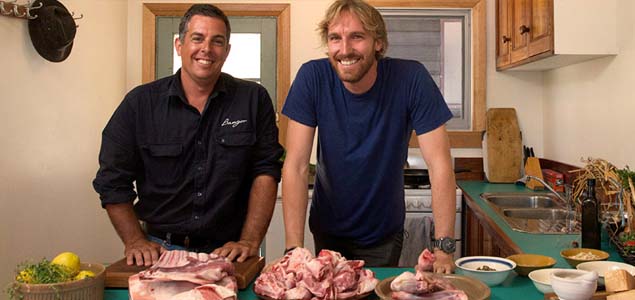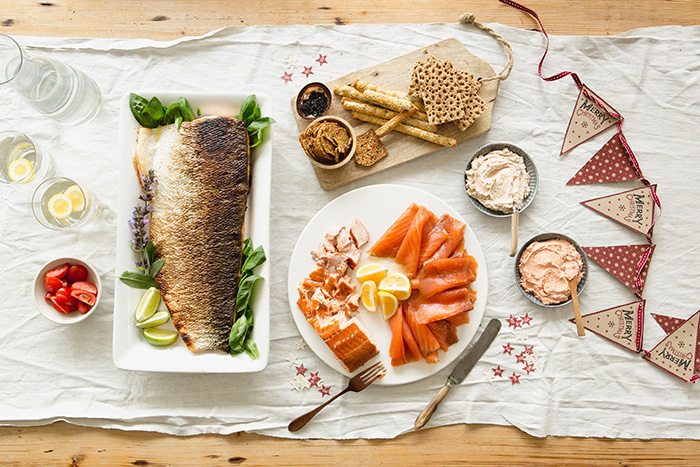“Eating today can seem a bit complicated. There are endless food ideologies and too many confusing messages, rules and restrictions for achieving optimal health and nutrition and minimising your impact on the planet. There had to be a simpler way,” says Darren Robertson.
“It’s how we arrived at the Bettertarian. A person who is a conscious consumer that wants to feel better about what they eat and the impact their food choices have on the environment,” the chef and TV personality adds.
Robertson’s own personal journey of becoming a Bettertarian first began with asking questions about how beef and lamb was farmed and what farmers are doing to care for their land and animals.
Armed with information direct from the source, Robertson learned to eat with understanding and make better food choices. In turn this led to feeling better about his health and impact on the planet.
With sustainable food advocate, Rebecca Sullivan, the experience of becoming a Bettertarian was captured in a documentary – The Journey of a Bettertarian – filmed on Bangor Farm in Tasmania, owned and operated by fifth-generation, Target 100 cattle and sheep farmer, Matt Dunbabin.
Robertson and Sullivan enlisted Dunbabin’s help to satisfy their curiosity and teach not only themselves, but also three urban Australians – Joanna Baker, Brett MacLachlan and Rebecca Stokes – more about sustainable farming. You can watch the film here.
The opening of Bangor Farm’s gate began a conversation about sustainable farming that led to not only the creation of the Bettertarian food philosophy, but also a Bettertarian recipe that encapsulates Robertson’s learnings about sustainable cattle and sheep farming. Click here for recipe.
“Experiencing a cattle and sheep farm first-hand gave our city visitors a new perspective on their food choices. Once they could see how we work with the environment and put the welfare of our animals at the centre of everything we do it set them on the path to find a better way to eat,” Dunbabin says.
As more and more Australians continue asking questions about where their food comes from and how it’s produced, Robertson and Sullivan believe that sharing the Bettertarian philosophy will help to empower and inspire others to make better, more informed food choices.
The Bettertarian Philosophy:
Eat with understanding: Asking questions about where your food is from and reconnecting with the journey from paddock to plate is a first step to becoming a Bettertarian. You can start the Bettertarian’s journey of discovery using any number of information sources. “Farmers like Matt are part of an initiative called Target 100 to make cattle and sheep farming more sustainable for the long-term benefit of the land and the immediate care of their animals,” Robertson says.
Respect the land and animals: The Bettertarian philosophy is focused on having respect for the land and animals. Bettertarians want to ensure the beef and lamb they are consuming has been raised ethically and sustainably.
A balanced approach: A Bettertarian is aware of other food philosophies and makes informed choices about what they eat, where it comes from and how it was produced. They enjoy a balanced diet and they rest easy knowing their food has been sustainably and ethically produced. “You don’t have to give up what you love, you can choose sustainable produce and enjoy better meals while feeling better for it,” says Robertson.
Eat well: Fundamental to the Bettertarian approach is eating for optimal health and nutrition. Bettertarians know that three to four small portions of beef and lamb per week are optimal for nutrition and following these dietary guidelines.
Nothing goes to waste: Bettertarians work to minimise waste when cooking and ensure they use all they can from their fresh produce by developing different ways to prepare food. “Having respect for the land and animals we consume, and the care and efforts of sustainable farmers, the Bettertarian takes the time to learn creative uses for all parts of their fresh produce. Developing new ways to prepare food to ensure no part goes to waste is a step everyone can take to contribute to more mindful, sustainable eating like a Bettertarian,” Darren says.
The documentary, The Journey of a Bettertarian, was funded by Target 100, an initiative by Australian cattle and sheep farmers to deliver more sustainable farming by 2020.





